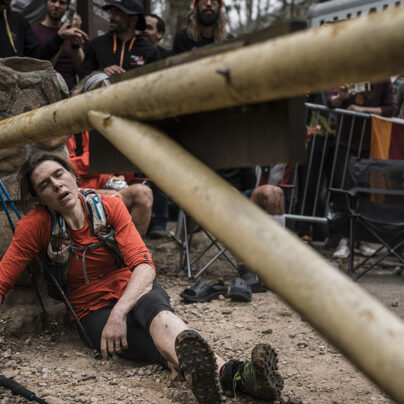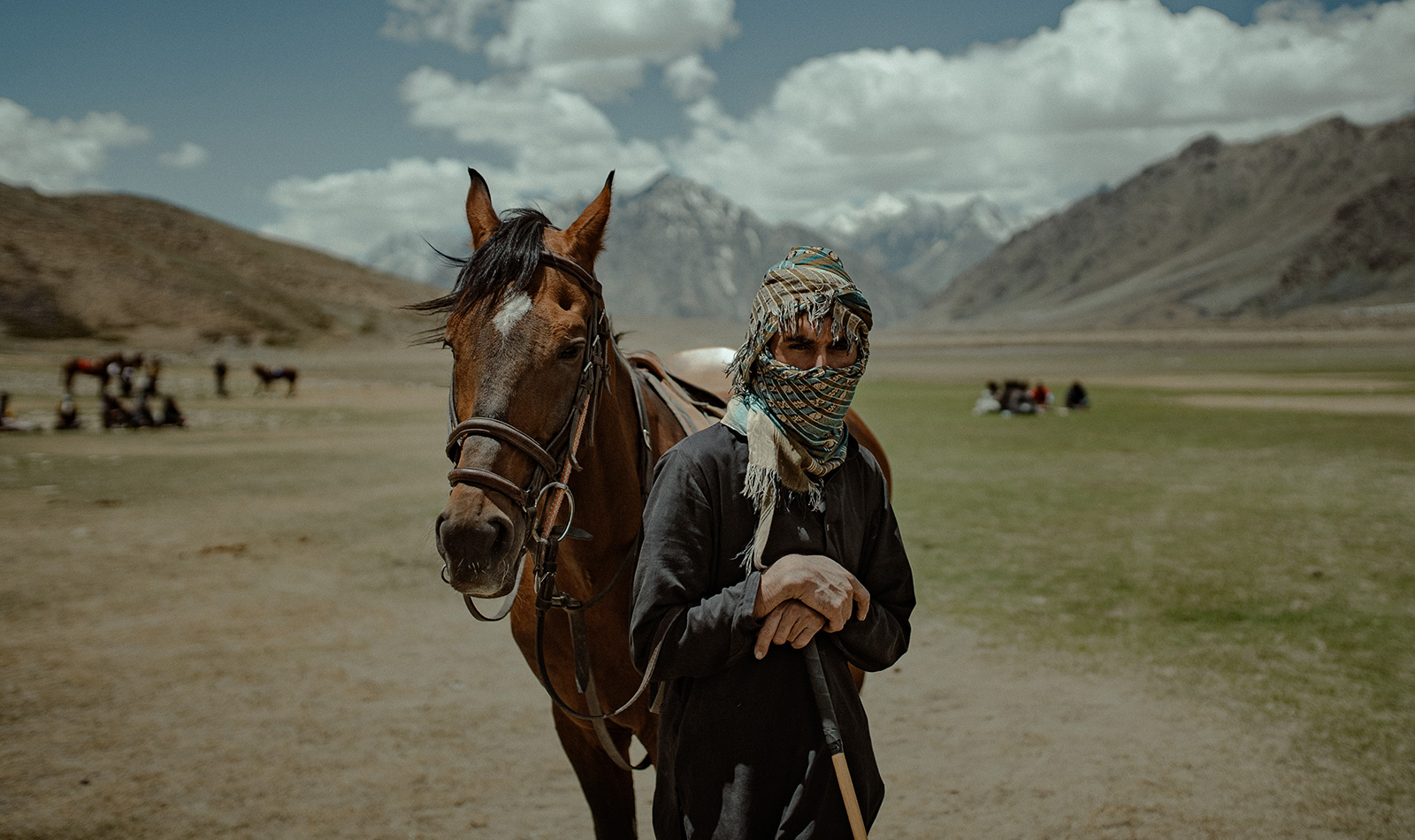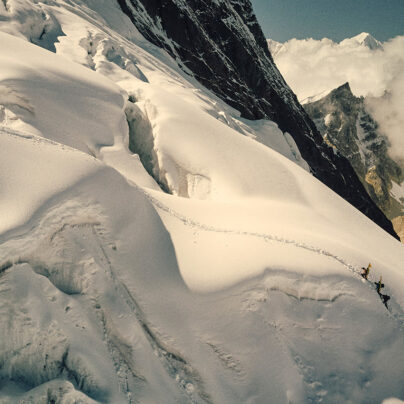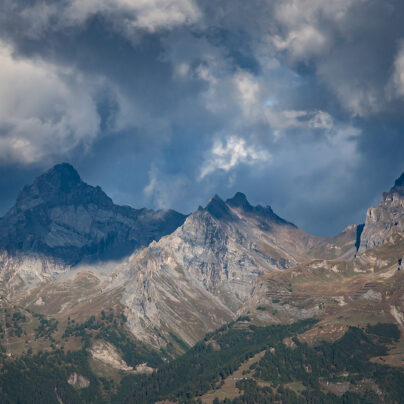For the Love of the Game
The Shandur Polo Festival
Words, Film & Photography by Troy Edige
I stepped out of the old four-by-four that carried me up the final stretch of mountain road, snaking up the valley in an elegant dance with the stream that ran against us. The fresh mountain air enveloped me, and the wind carried my thoughts away, leaving me alone with a view of the vast plateau surrounded on all sides by mighty, snow-capped peaks. It felt like being at the bottom of a giant’s cereal bowl. I looked around for a sign of human movement, but all I saw was stillness. The mountains gazed back at me and responded with more howling wind. As I scanned my surroundings, I noticed my driver, who seemed to be enjoying this little stop, with his eyes closed and head tilted towards the sun, oddly resembling a sunflower with a turban. He must have sensed me looking at him, as he turned to me, and, without opening his eyes, gave me a shrug. Just as his shoulders dropped again, I saw a slender figure clad all in black emerge on a ridge behind him. He effortlessly descended the lumpy rocks and dirt, letting gravity do most of the work for him, his long kameez billowing in the wind. This made his approach look all the more ominous.
All I could see under his head scarf was a pair of piercing dark eyes beneath thick but purposefully shaped eyebrows. He stood close as he looked me up and down, and, without uttering any words, he took one of my bags from the four-by-four and made his way back towards the hill. In a moment when I felt lost, it was nice to meet someone who seemed to know who I was and where I was going. The man in black was making short work of the hill – which to me had started feeling a lot steeper than it looked. He would occasionally stop and observe my laboured progress as I had to stop every few steps to gulp in some more of the thin air. The altitude was already taking effect, and my decision to ascend the entire route in one day now seemed a foolish one. Even the players who live in the valleys nearby would come up to Shandur a week early and partake in days of practice games. Not so much to brush up on their swinging skills, but to prepare themselves and the horses for extended periods of high-intensity exercise at an altitude of 3,800m.



PHOTOS 01: The view from my tent // 02: Itinerant shepherd boy // 03: Outside of the polo festival, livestock are the only inhabitants of this stretch of land // 04: Itinerant shepherd boys
As I clambered over the top of this hill that I had found so challenging, I was met by the camp that would be my home for the next 10 days: a handful of colourful tents nestled on the banks of a stream that snaked in from the mountains to the south. The colours and smells around me started to change. The blue of the sky deepened towards indigo with strokes of violet, the bright amber from a fire newly lit came with a whiff of smoke, and the smell of soil and grass rose from the earth under the shade of the skyward rocks surrounding us. I entered the main tent where a party was already underway. About a dozen people sat cross legged around large plates of roasted meat, drinking moonshine and taking turns singing verses of traditional songs sounded out by the resident rubab player.
This was the first time I laid eyes on the prince. My only prior contact with him had been a short and crackly phone call, and I was surprised to find a man with a demeanour as gentle as his voice. It was as if age hadn’t touched him. It’s easy to reach for conclusions about a man whose birthright is an entire region and who also happens to have captained his local polo team for over 30 years, but his personal history – and his prowess as a player – stood up to his myth. He told me stories of himself growing up around horses, and how he revived the Shandur polo festival in the ‘80s to reunite the people of Chitral and Gilgit. People around us quietened down as he spoke his impeccable English in hushed tones.
One by one, I met the members of the contingent, and the people who would become my close friends and keep me company on this unfamiliar hilltop. The occupants of Sikander’s camp were a diverse mix, but mostly drawn from family and friends. A cousin who had retired from polo but ran the logistics for the camp. A police chief with a knack for fixing mallets, and his son Taimur, who played for the Chitral D team. Sikander’s teenage son, nicknamed Pordoom, meaning snow leopard. Two of Sikander’s nephews. A number of stable hands, including the quiet man in black, Sadil, who turned out to have a winning smile despite his lack of words. Iqtidar the rubab player. The chef everyone referred to as ‘Uncle’, and his apprentice. Two guys called Mueen and Ahtisham whose sole function seemed to crack jokes. And, luckily for me, a filmmaker and anthropologist duo from Islamabad, Jawad and Adeel, who were tented right next to me and would help me no end in communicating, shooting, and sometimes staying sane. They had also, mercifully, brought ground coffee with them – something I had neglected.



PHOTOS 01: Evening entertainment after the matches // 02: A spectator tries to get a better view // 03: The road leading towards the polo ground // 04: Cooling off the horses
Time slowed down on the mountain. A meteor shower greeted me on my first night, and I sat on the rocks with my new friends, gazing at the starry dome above. The horses peacefully slept under their blankets, silhouetted by the starry sky. Days had an unhurried rhythm in the build-up to the tournament proper. We would wake up shortly after sunrise, having barely slept the night before due to the wildly fluctuating temperatures reaching well below freezing, then convene at the main tent for a cross-legged breakfast of flatbread, butter, jam and, of course, condensed milk – a favourite in the region. We would then make our way to the practice pitch where old friends met again and old rivalries were rekindled. Before long, the unfettered afternoon sun would force everyone back into their tents for a long nap. There was an inevitability to the cycle that was dictated by the forces of nature, and for the first time in a while I felt myself truly surrender to the elements.
Time slowed down on the mountain. A meteor shower greeted me on my first night, and I sat on the rocks with my new friends, gazing at the starry dome above.
In these first few days I didn’t meet many new souls. Shandur is unreachable between October and March, and even after the thaw, not many cross this land apart from itinerant shepherds. The festival is the single event that causes the greatest influx of people. Soon the crowds started to arrive: first motorbikes laden with goods and sometimes live animals, then rugged old buses carrying lower-valley locals, followed by city dwellers arriving in their private-hire four-by-fours. Within a couple of days a small town had sprung out of the barren land, with vast clusters of tarpaulin tents forming streets that were populated by vendors of all varieties. The military, tasked with providing infrastructure, set up their camp too, complete with satellite dishes and armoured vehicles. It was as if raiding insects had swarmed this vast swathe of open land, which would soon host an astounding 30,000+ people. In the nights leading up to the tournament, the clamour of the visiting circus echoed off the rocks into the night sky.
***
One morning I was woken up by Mueen, who matter-of-factly told me that a soldier was asking for me, and that I should report to the practice pitch immediately. I didn’t quite know what to make of it all when I was met by a squat man clad in military gear on his bottom half, but wearing a varsity hoody for a top. Inelegantly, he clambered down from a pony – which frankly looked comical – and came to me, one hand outstretched. I couldn’t get a full read on his facial expression, as mirrored aviators covered part of his face, but I’m almost sure his eyes were beaming with pride as he introduced himself as a commander of the special forces. He quickly got on his radio and shouted instructions into it and in a few moments a flamboyant pickup truck blaring distorted Desi pop appeared in front of us. I duly obliged when gestured to get in and we set off, circling around the practice pitch as the riders expertly manoeuvred their horses. I couldn’t make much sense of our procession, but I probably didn’t have to either, so I assumed the role of a willing passenger. The short trip ended at the commander’s tent a few miles away within the military settlement. Here I was offered lunch, along with a tin of wheat beer that he pulled out of a barely hidden box with a cheeky grin on his face.



PHOTOS 01: An evening at the camp // 02 & 03: Vendors at the tent village // 03: The road leading towards the polo ground // 04: Aadil and Jawad, the anthropologist and filmmaker duo who kept me company and made this film possible
The purpose of this brief jaunt became apparent when my new acquaintance started talking about his sniper rifle and how he enjoyed hunting the prized markhor – an indigenous species of mountain goat distinguishable by its spectacular corkscrew-shaped horns – whenever he visited the area. I suspected he was using our new-found relationship as a way of getting to the prince, so that he may get his blessing to hunt on his land. The commander was searching me for an indication of how Sikander would look on this request, but I was unwilling to give an answer, so back we went into the pickup and rode towards our camp. On the way back, the commander toked on a hashish joint he had rolled and retold stories of facing Al Qaeda on a ridge years ago. I led him to the royal tent. As we entered, Sikander gave him a quick glance, then turned to me with a knowing smile as he invited us to sit amongst the older men of the company (who were already merry from moonshine and other contraband). I politely declined the offer of a glass, having already learned my lesson, but the commander was quick to take the drink. He went on his way as the sun disappeared beyond the mountains. No hunting took place that day.
The tightly packed bodies formed human mountains that came alive and undulated as supporters alternated between leaping in the air and slumping with each goal. The thunderclap of their roaring cheers drowned out the tinny commentary streaming out of the PA.
The final day of the tournament arrived – an occasion marked by a series of paragliders landing on centre field, followed by performances by traditional song and dance troupes. Mud hills lined with rocks made up the rudimentary seating arrangements that surrounded the pitch. The tightly packed bodies formed human mountains that came alive and undulated as supporters alternated between leaping in the air and slumping with each goal. The thunderclap of their roaring cheers drowned out the tinny commentary streaming out of the PA. The main event of the day was Chitral A, captained by Sikander, versus Gilgit A – a north-western Pakistan polo all-star game of sorts – and there was much tension in the build-up to it. More than a few players came off their horses during the early games of the day, and a couple of them had to be stretchered off the pitch, seemingly unconscious.
The locals refer to the brand of the game played here as freestyle polo and view it as the original form of the game that is currently popular on the international stage. Not having watched a great deal of polo prior to my visit, I didn’t have many comparisons to make, but what immediately stood out was the intensity players brought to the game. Every hit, every collision was hard, and there was palpable emotion at the end of every game. It was part of these people’s identity, a matter of pride – and everyone took it seriously.
Even though Sikander’s team had been undefeated for the last eight years, the players were visibly tense when I sat with them before the game. Not a single word was uttered and the air was heavy with anticipation as the rampant crowd came to a lull, waiting for the referee to give his signal. An hour later, a cloud of dust lingered over the pitch as the crowd descended onto the playing field to celebrate with the winning side. Sikander was hoisted onto shoulders, triumphant and leading his fans in cheers as the sun slowly made its way behind the mountains to the west.



PHOTOS 01: Vendors at the tent village // 02: Police Chief Sadil Khan repairing mallets // 03: A look at the glacier at the end of a hike from our camp. This is claimed to be the stomping ground of the markhor // 04: Hooded man // 05: The sun sets over Shandur
I looked on as the last tent of our camp was dismantled, the central pole hitting the ground with a hollow thud. Iqtidar was playing a song on his rubab; a company of the younger boys danced around him as the vehicles of our convoy drove past one by one. Sadil had already left with the first light, leading the horses on a journey that would take him over 12 hours on the dirt and gravel roads that led down into the valleys and into Sikander’s home town, Mastuj.
As our travelling parade drove past the villages that were nestled amongst the switchbacks, the villagers came out to join the celebrations, drawn into the street by the three-piece band that paraded the oversized trophy on the bed of a pickup. In some villages we were met with modest but colourful banquets, invariably followed by music and dance sessions. The final celebration was to be at Sikander’s home, and it seemed that the entire population of the village gathered in his lush garden lined with apple and plum trees. I found a place under a tree next to a group of the guys from our camp and we watched the song and dance once more, familiar by now, as we slyly passed around a bottle of moonshine.
I spent much of the next week lying in bed. I had a fever, which started just as we reached Mastuj, and it turned out to be the omen of a particularly nasty stomach flu. When I could muster enough strength, I would share a meal with Sikander in the orchard, our conversation occasionally interrupted by the thuds of ripe fruit hitting the ground. He would take some of this fruit to his beloved horse, Saab, on our way down to the polo pitch adjacent to his grounds, where the locals played their practice games. As we watched the youngsters who might one day be galloping their horses on Shandur, I pictured a young Sikander rushing down the field, swinging his mallet.
Words, photography and film by Troy Edige
Website: troyedige.com/ftlotg // troyedige.com
Instagram: @troyedige





